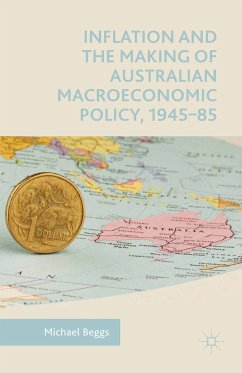"Antitrust analysis as it should be done! This excellent book is essential reading for anyone wishing to understand the variegated evolution of antitrust ideas, policies and institutions in the US, Europe, Japan and the BRICS. Eleonora Poli provides a compelling and theoretically informed antidote to reductionist and ahistorical portrayals of antitrust paradigms and their institutional manifestations. Building on insights by Douglas North, in combination with sociological approaches of institutional isomorphism, her in-depth analysis comprehensively reveals mimetic, normative and coercive trajectories in the institutionalisation of antitrust ideas and interests over time. The book's strength lies in that the politics of antitrust
convergence and divergence is elegantly embedded into broader macro-economic developments and institutional contexts, as well as capitalist crises." - Angela Wigger, Radboud University Nijmegen, The Netherlands
"This volume is a must read for those interested in the evolution of international economic institutions, models of capitalism and diffusion of ideas in the global economy." - Anastasia Nsevetailova, City University, UK
"Poli has generated a welcome contribution to the study of global anti-trust policy formation. Crafting an institutional IPE interpretation, the book weaves together a convincing narrative of how American ideas have been disseminated internationally and internalised domestically without losing sight of how national specificities mediate such institutionalisation, indeed neoliberalisation, processes." - Thomas Marois, SOAS, UK
"Eleonora Poli has produced a highly readable account of the development of antitrust in the global political economy. With an acute sense for nuance, she traces how US antitrust ideas and policies were disseminated to Europe and Japan, and more recently to the BRICS, and how they articulated with domestic historically determined conditions to produce multiple variants of neoliberal competition policy. Novel in its comprehensiveness and theoretical approach, Poli makes a valuable contribution to the burgeoning competition literature." - Henk Overbeek, VU University Amsterdam, the Netherlands














